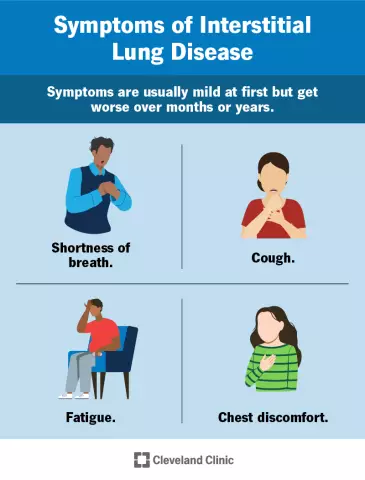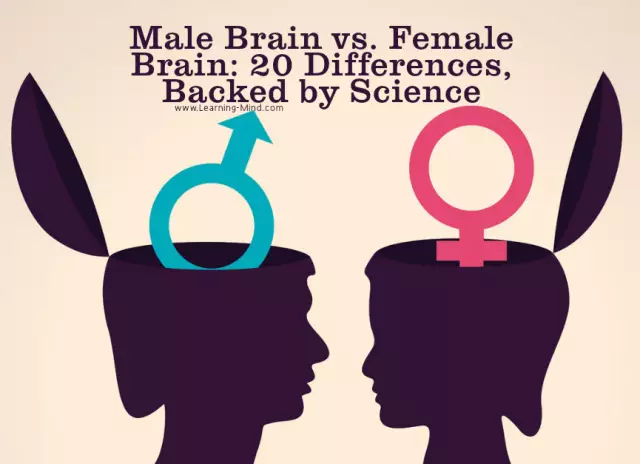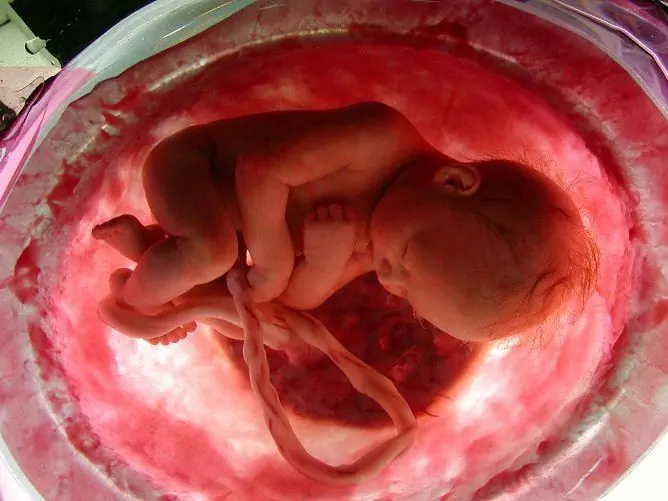- Author Rachel Wainwright wainwright@abchealthonline.com.
- Public 2023-12-15 07:39.
- Last modified 2025-11-02 20:14.
Brain hypoxia

In medicine, it is customary to call brain hypoxia a disease in which the human brain receives an insufficient amount of oxygen. This pathological condition can have serious consequences, including coma and death. It should be said that very often the death of a person affected by such a disease is sudden. Symptoms and treatment of brain hypoxia in different patients directly depend on the reasons that provoked the disease.
Causes of brain hypoxia
As already noted, the very first cause of brain hypoxia is the lack of oxygen supplying this vital organ. Such a pathology can be triggered by various conditions, for example, climbing to a height, working in mines, in submarines, etc. In addition, the lack of oxygen is also caused by other factors. The airways can often become clogged with foreign bodies or mucus. Also, the cause of brain hypoxia can be an acute shortage of specific vitamins in the human body.
Among other common causes of this disease, the following can be distinguished:
- Inhalation of carbon monoxide (for example, during a fire);
- Carbon monoxide poisoning;
- Diseases that disrupt the functioning of the respiratory muscles (paralysis);
- Strong pressure on the throat area (trachea).
Also, for reasons of brain hypoxia, this pathology can be classified as follows:
- Disseminated hypoxia;
- Central healing ischemia;
- Global healing ischemia;
- Ischemic stroke.
Disseminated hypoxia of the brain is provoked by an insufficient amount of oxygen in the blood of a person and is characterized by dysfunctions from low to medium severity.
Central healing ischemia is a disturbed blood circulation in a localized area, which can be the result of various diseases (for example, an aneurysm or a thrombus, manifested by blockage of blood vessels). It is important to note that this condition is in addition to most clinical heart attacks. Global ischemia is the complete cessation of blood supply to the brain.
Severe ischemic stroke can also be triggered by a lack of oxygen due to poor circulation. Such an attack covers many parts of the organ.
Symptoms of brain hypoxia
Every 100 g of the brain needs approximately 3.3 ml of oxygen every minute. When this amount is not provided, the first symptoms of brain hypoxia begin to appear. They suggest, as a rule, some difficulty in performing mental tasks and a violation of a person's short-term memory. In addition, at the initial stage of the disease, a state of increased excitability is often observed.
The patient may feel excessive energy and even euphoria, which is accompanied by a loss of control over their own movements, a shaky gait, a rapid pulse, and impaired cognitive functions in general. In addition, changes in human skin color are characteristic of the first stage of cerebral hypoxia. Most often it becomes pale with a bluish tinge, but sometimes it can also acquire a dark red color. Cold sweat is often a symptom of brain hypoxia at this stage.
The second stage of the disease is characterized by impaired functioning of the human nervous system. The patient, as a rule, has regular bouts of nausea and dizziness, often the disease is accompanied by severe vomiting. In addition, very often additional symptoms of cerebral hypoxia at the second stage are impaired vision, frequent darkening in the eyes, general weakness of the body and even fainting.
Severe cases of this disease are often accompanied by cerebral edema, which provokes serious disorders in its activity due to the loss of conditioned, and then unconditioned reflexes. If the amount of oxygen for the brain continues to remain below normal, the human skin loses its sensitivity, and then all organs gradually stop functioning normally, which often leads to a state of deep coma and death.
Diagnostics and treatment of brain hypoxia
Effective treatment of brain hypoxia is possible only after the cause of the disease has been established. It is detected both on the basis of the patient's medical history and through diagnostics using various methods:
- Blood tests;
- An electrocardiogram, which helps measure the activity of the heart;
- Electroencephalogram, which analyzes the functioning of brain cells;
- Echocardiogram;
- Computed tomography of the head;
- Magnetic resonance imaging of the head;
- Pulse oximetry, which helps to establish blood oxygen saturation (the indicator in a sick person is below 95%);
- Capnography and other types of examination of exhaled air gases.

As already mentioned, treatment of brain hypoxia is aimed primarily at eliminating the cause of the disease, therefore, in different cases, the doctor prescribes various procedures. For example, with a mild form, sometimes ordinary ventilation of the room or walking in the fresh air is sufficient, while serious conditions require serious medical procedures. So, it is possible to distinguish individual methods of treating brain hypoxia, depending on its specific type:
- Exogenous hypoxia involves the use of oxygen equipment (oxygen masks, cartridges, pillows);
- Respiratory hypoxia requires the use of drugs that restore the functioning of the respiratory tract. Sometimes artificial ventilation is prescribed;
- Hemic hypoxia is eliminated with blood transfusion and oxygen treatment;
- Circulatory hypoxia of the brain involves the use of drugs with a cardiotropic effect aimed at improving microcirculation;
- With tissue hypoxia, drugs are prescribed that restore oxygen utilization by tissues, sometimes ventilation of the lungs is used.
In addition, doctors often recommend taking vitamins and walking in the fresh air when there is a lack of oxygen.
YouTube video related to the article:
The information is generalized and provided for informational purposes only. At the first sign of illness, see your doctor. Self-medication is hazardous to health!






